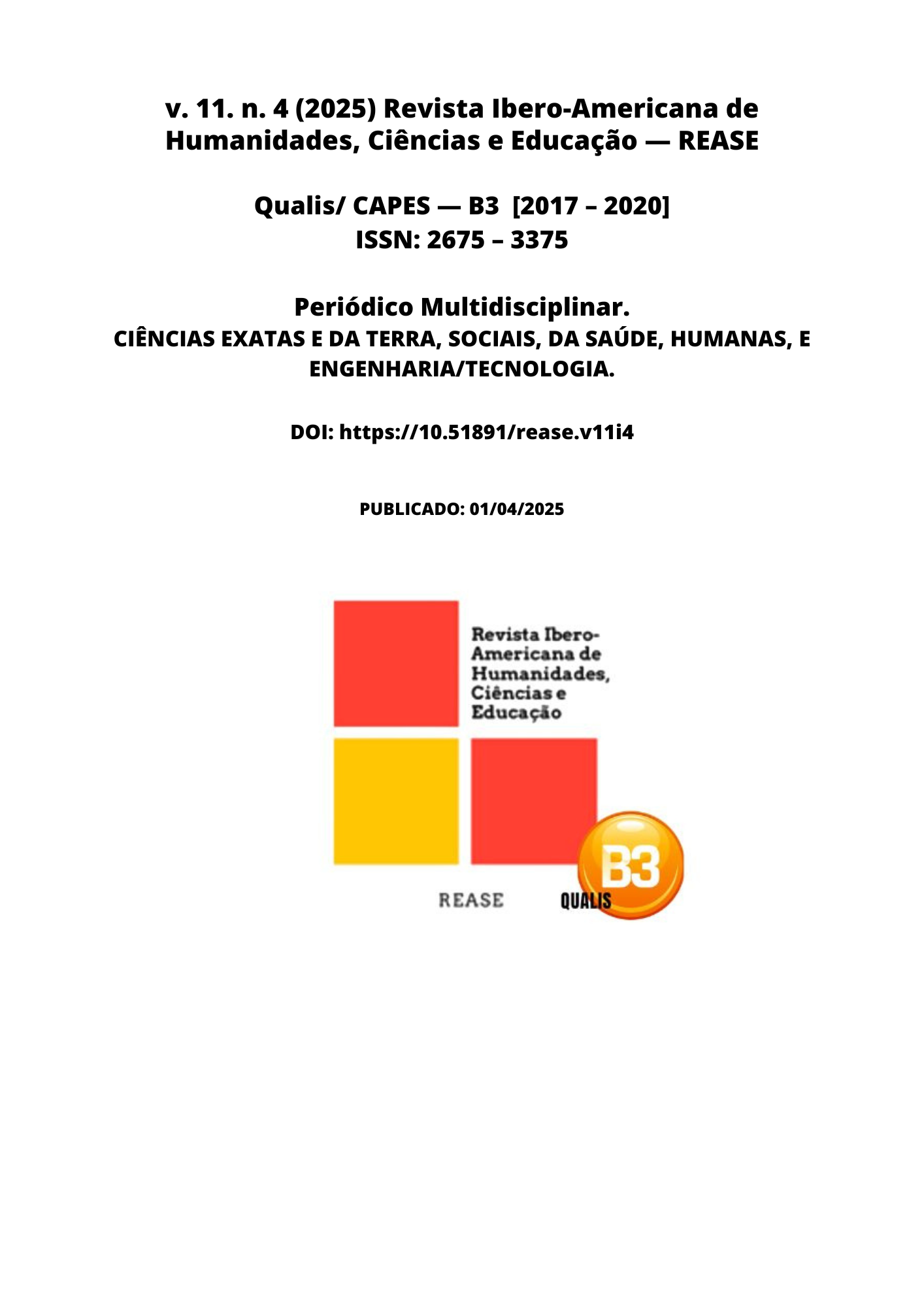CRITICAL ASPECTS OF BRAZILIAN SOCIETY THROUGH THE REALIST LENS OF MACHADO DE ASSIS IN THE WORK THE POSTHUMOUS MEMOIRS OF BRÁS CUBAS
DOI:
https://doi.org/10.51891/rease.v11i4.18589Keywords:
Historical context. Exegesis. Hidden truths.Abstract
Machado de Assis created works whose plots are determined by historical truths, of which he was aware of the deep connection between literature, social reality, and History. The work Memórias Póstumas de Brás Cubas (The Posthumous Memoirs of Brás Cubas) reveals critical aspects of Brazilian society at the end of the Second Reign. However, Machado trusted that his contemporaries were not the type to seek the truth too deeply. Despite this, the author himself states: "I did not write the history I expected; the one I brought from there is this" (Machado, in Gledson, 2003, p. 46). The justification for choosing the proposed theme lies in the fact that history is the central element for understanding literature, bringing to academia the debate about a new investigation of the work through a historical perspective in comparison to the inferences drawn from the novel Memórias Póstumas de Brás Cubas, since the History described in the plot does not appear to be the History that Machado intended to tell. It is up to us, researchers and scholars, to uncover the hidden truths and their relationship with the Brazilian society contemporary to the writer. The objective was to use exegesis, compared to the systematic procedure of bibliographic research, as the foundation for the proposals presented in the work. Thus, we believe we can reconcile the studies conducted by other authors, along with the investigation and comparison by historians, to achieve the goal of revealing the implicit truths in the work.
Downloads
Downloads
Published
How to Cite
Issue
Section
Categories
License
Atribuição CC BY

